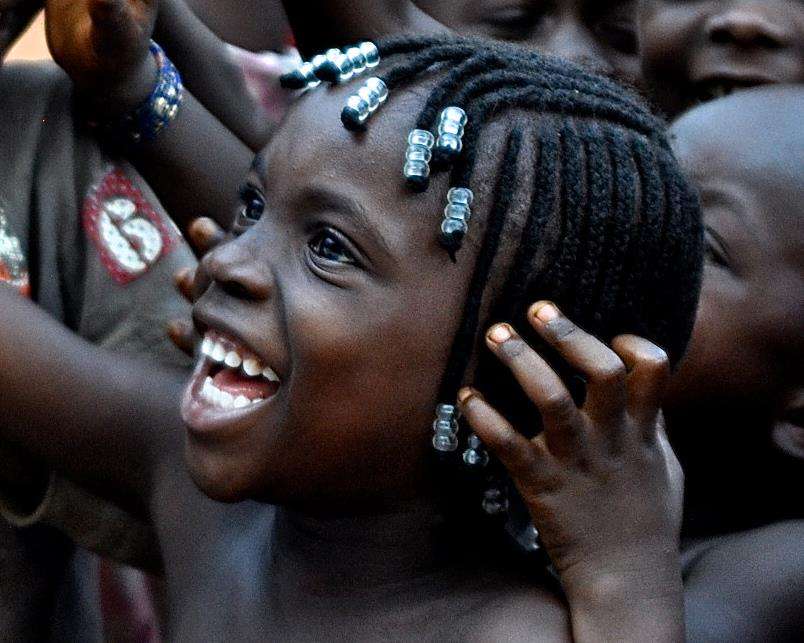Ο Πάνος έγραψε σήμερα στο Facebook:
I came to Sierra Leone expecting to find stories of war, suffering and survival, yet these stories of the past that unite the people in this African country are not the ones that define them in the present.
One example is Alusine, our guide, translator and travel companion around the country for two weeks. We met Alusine in Freetown soon after our arrival. A very energetic man in his early 20s, who if he is not smiling, it is because he is laughing. In 1998, when the end of the war reached Freetown, Alusine was living in Lakka, near Freetown, with his family, and at 11 years old he had to regularly make a 24-mile walk to find food. One afternoon, on his way back home, he was abducted by the RUF (Revolutionairy United Front, i.e. the rebels). He was beaten relentlessly, tortured, injected with cocaine, eventually given an AK47 and "recruited" as a child soldier, a fate not uncommon at the time for children his age. Before he was a teenager he knew about war and killing (aka "washing"), and when he dared ask his commander "Sir, what are we fighting for?" he was tied up to a chair and forced to look directly at the sun for a whole day. After nine months in hell, he managed to escape, together with two friends. He reached home three weeks later, after a long march through the forest, only to find the door closed for him, his family saying that only the ghost of their son had returned. He eventually made it to a hospital and recovered from his ordeal, while doctors spent two months clearing out the drugs from his system. He has remained good friends with the two boys that escaped with him on the same day--one of them now is a security guard and the other is a medical student. Alusine today is actively involved with several organisations helping children and young people in Sierra Leone.
Everybody has a story, yet the war is almost not spoken of. The pain and devastation was felt by everyone, it touched everyone's life, and the images of extreme brutality are too vivid to forget. Yet the country needs some serious re-branding, because so much has happened in the last decade. Sierra Leone has come remarkably far on the long road to recovery, and it is only because of the amazing spirit of its people that, hardly ten years later, a visitor can almost miss the wounds of the past. What is impossible to miss however are the smiles, the laughter, the dancing, the hospitality. The place is messy, dusty, chaotic, irrational, impossible for anyone to stay clean in for more than 10 minutes, but the colours full of life, the real energy, the determination of people to smile no matter what, make it all worthwhile, inspiring, wonderful.
Classical music, although unknown and new, inspires, it is felt by the heart, and is expressed astonishingly through dance and movement. Who would think that people listening to classical music for the first time would dance so beautifully? A group of sex workers spontaneously jumped off their seats to dance to Greek music, followed by Tchaikovsky. A thousand inmates (in a prison built for three hundred) cheered almost out of control as they moved their feet to Handel. A group of blind students danced spectacularly to Chopin, jumping around a small room, expressing this new music freely, in the most fresh and beautiful way I have ever seen, perhaps because nobody told them that they can't. One of them very delicately put my hand in theirs and touching my palm very gently whispered "Diamond fingers".
Being cheerful reminds people they are alive, not being sad, and music for Sierra Leoneans can only be part of their cheerfulness. Our guide Alusine smiled softly when he shared with us some of his scars: beatings on his chest, a bullet in his leg. "We have to make sure there is a future for young people in this country", he said still smiling. "And music will bring people closer together."



















